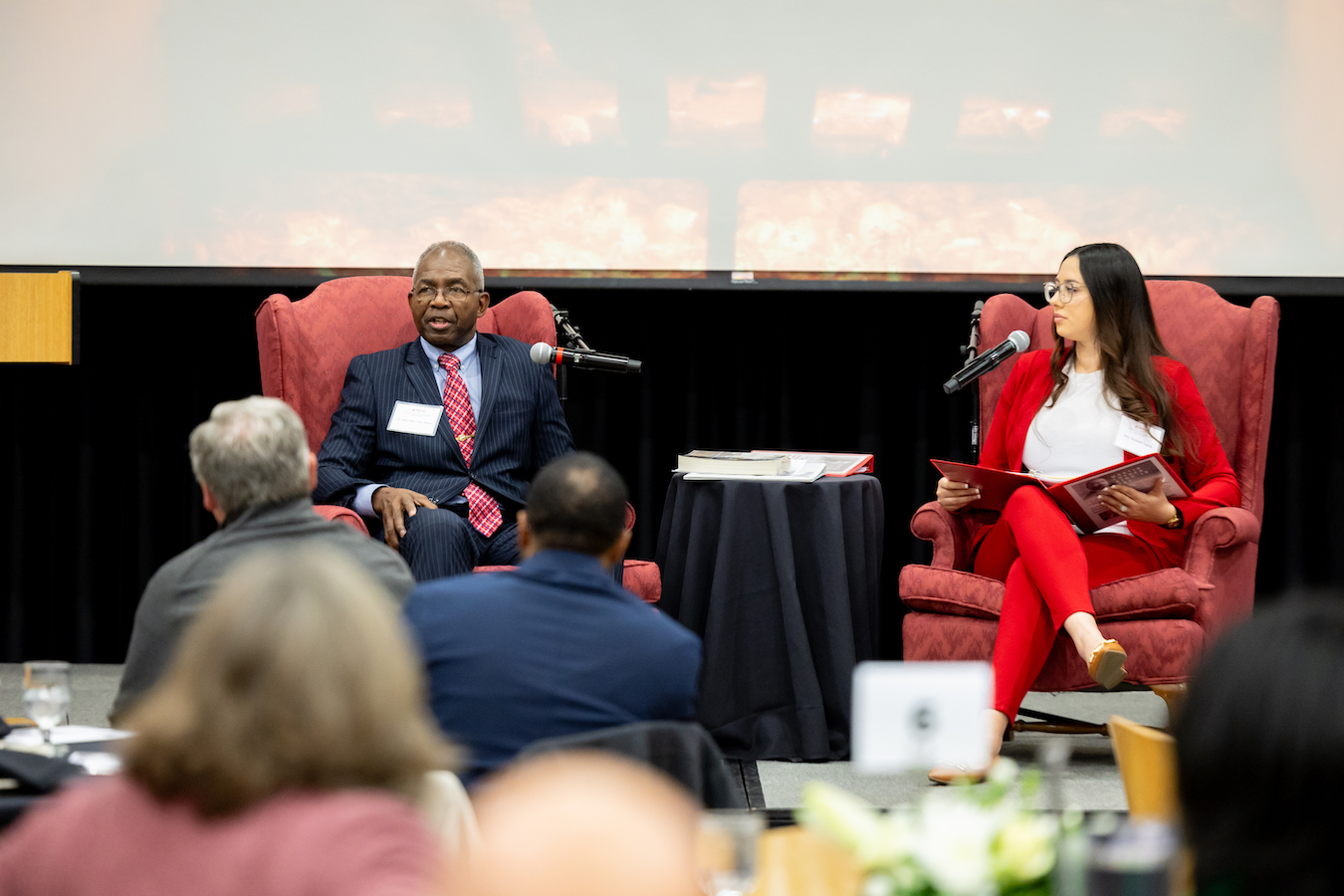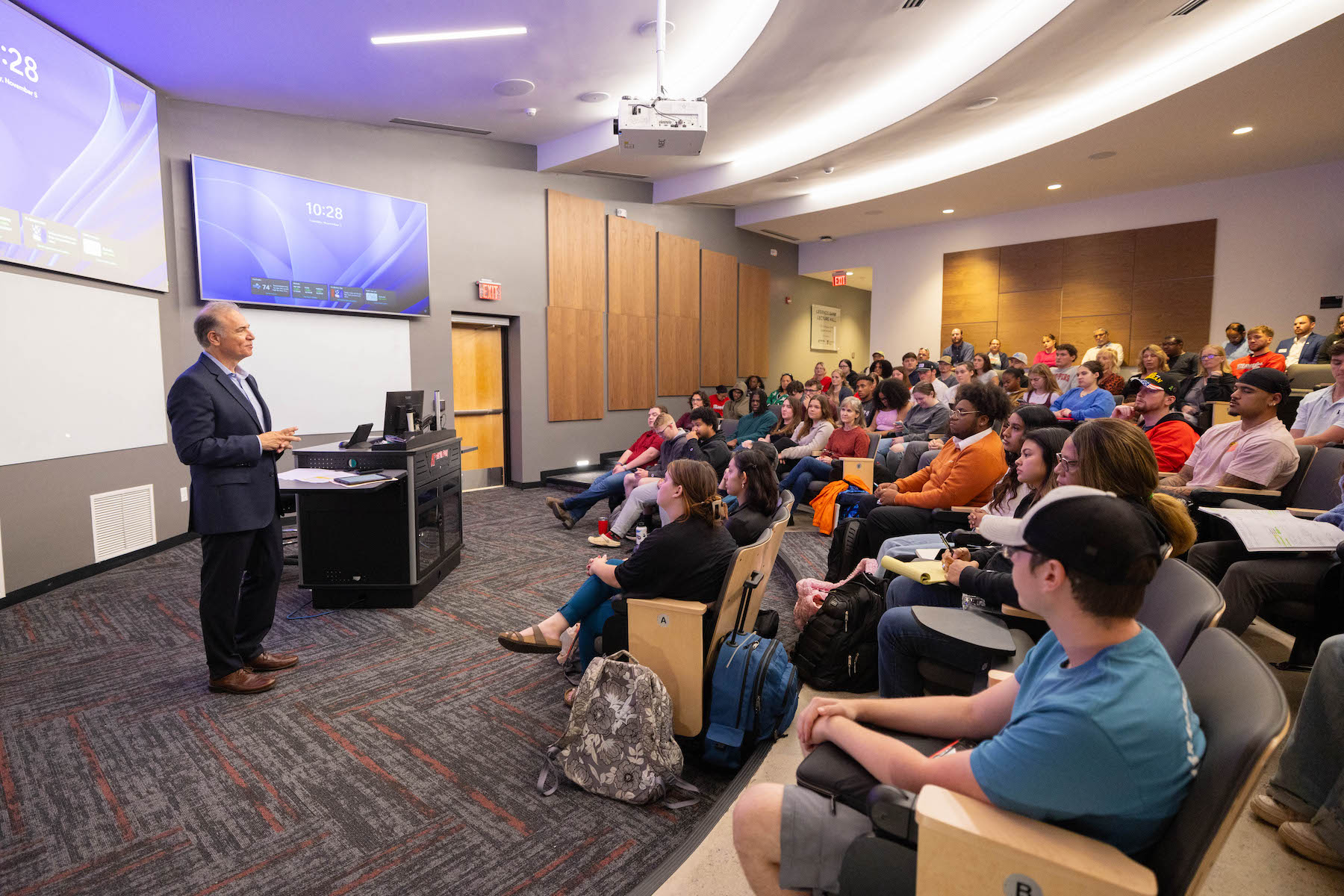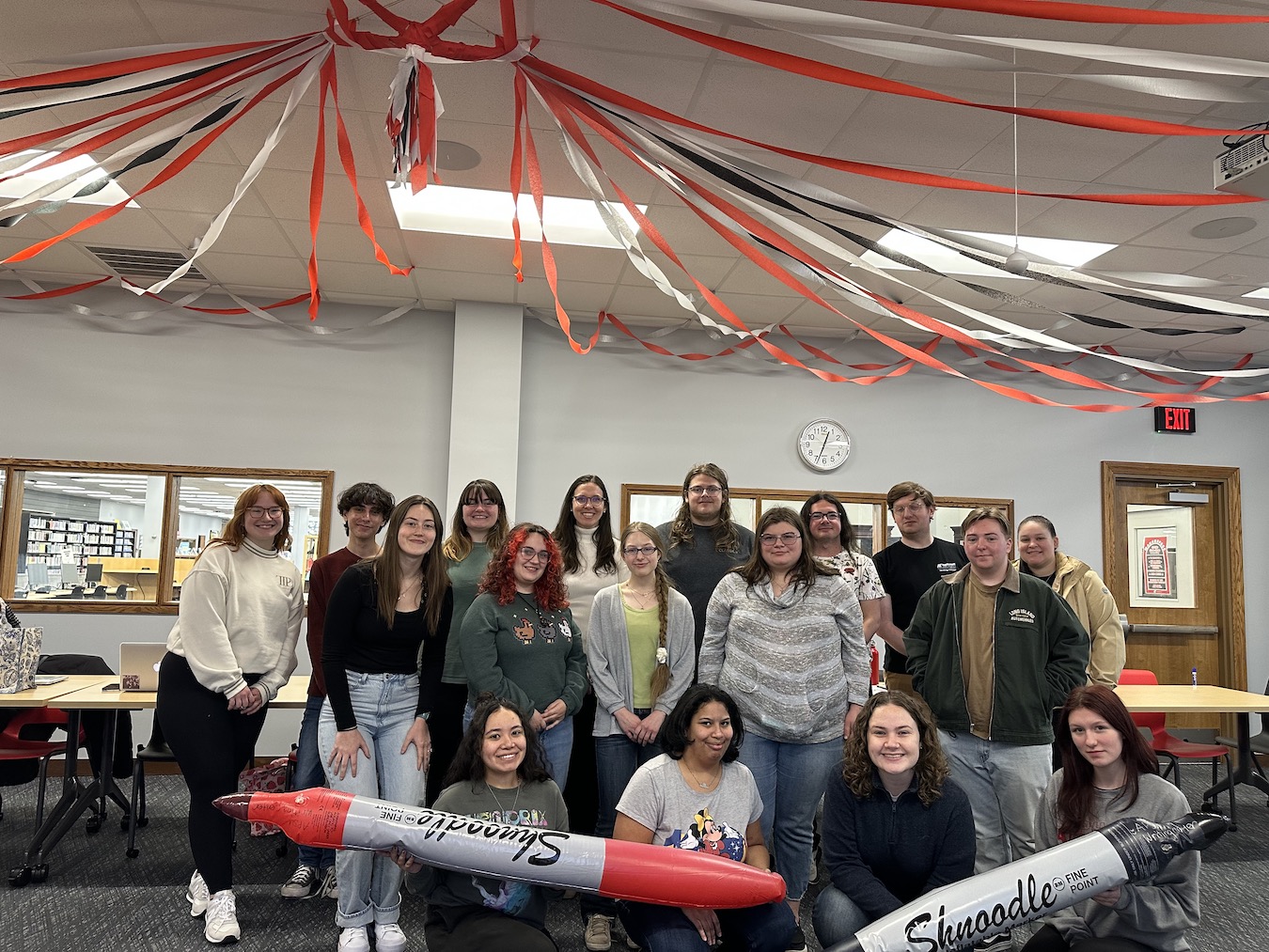Center of Excellence for Field Biology, Clarksville Sustainability Board team up to form Healthy Yards program
(Posted on Tuesday, Nov. 1, 2022)

The Center of Excellence for Field Biology at Austin Peay State University has partnered with the Clarksville Sustainability Board to offer a new program to help residents add more native plants and pollinators to local yards.
The program, named Healthy Yards, has simple goals: to get participating residents to plant and maintain at least three native plants and to avoid using pesticides or herbicides. City residents who register will receive a yard sign to display. Look for them to start popping up around town.
Anyone interested in the program can visit the Healthy Yards webpage for tips and to register their yards. The page also offers resources for finding and maintaining native plants.
“We all rely on pollinating insects for the production of healthy fruits and vegetables and for healthy ecosystems,” noted an Oct. 6 City of Clarksville proclamation signed by Mayor Joe Pitts. “A yard with less lawn and more native plants can reduce the need for chemical use, providing a healthier environment for children and pets.”
The proclamation recognizes the efforts of Michelle Rogers, an instructor in the Center of Excellence for Field Biology and the Department of Biology, and Olivia Herron, Austin Peay’s former sustainability coordinator. It also names JoAnn McIntosh, chair of the Sierra Club’s Clarksville-Montgomery County chapter, and Carlye Sommers, grants analyst of Clarksville Gas & Water.
The Clarksville Sustainability Board, with the support of Ward 9 City Councilperson Karen Reynolds, launched the program in August. Since then, board members have worked diligently to register people for the program. Montgomery County also recently agreed to adopt the program, Rogers said.
Encouraging people to ‘get started’
“We want to just encourage people to get started,” Rogers said. “If you do anything with your yards or have cultivated plants, these should be easier. They should maintain themselves better.
“All of the plants that we’re selling and giving away are perennials, and generally because they are native, they also seed out,” she added.
Plants that are native to Tennessee are adapted to our soils and climate. They will thrive here and require little to no watering once established.
Not only are yards with native plants (and fewer chemicals) good for pollinators, but they also allow native insects to thrive, and that helps native birds and other animals.
“We all rely on pollinating insects for the production of healthy fruits and vegetables and for healthy ecosystems,” according to the program’s website. “A yard with less lawn and more native plants can reduce the need for chemical use, providing a healthier environment for children and pets.”
Native plant workshop
The Austin Peay Office of Community Engagement and Sustainability will offer a native plant workshop to area residents from 11 a.m.-2 p.m. on Saturday, April 29, at the APSU Outdoor Education Center.
The workshop will be a family-friendly, drop-in event with free native plants.
Also in late April, Austin Peay will host an online native plant sale with in-person pickup. The Healthy Yards webpage will add a link to the sale next spring, and Austin Peay’s assistant director of landscapes and grounds, Wes Powell, will notify participants about the sale.
What can you do now?
Rogers shared some quick tips about maintaining a sustainable yard this fall.
Many butterflies overwinter in chrysalises in fall leaves, and queen bumble bees burrow into the soil surface below leaf litter to stay warm, she said. Leave the leaves!
She also recommended planting dormant trees after the first hard frost of the season. The best trees for pollinators are native oaks, redbuds and southern magnolia. Oaks provide a habitat for more than 500 pollinator species.
Fall is the time native plants naturally drop seeds. You can start native flowers from seed now or wait until spring to start with purchased plants.
News Feed
View All News
Elizabeth Daniel, an online military student at Austin Peay State University, led a fireside chat with retired Marine Lt. Gen. Ronald Bailey during the university's third annual Martin Luther King Jr. Day Breakfast, showcasing her journey from military service to academic achievement and community engagement.
Read More
Austin Peay State University's College of Business will host Tennessee Titans CFO Shannon Myers and Renaissance Nashville Hotel's Sherry Franklin as part of the spring 2025 Legends of Business speaker series.
Read More
Austin Peay State University's Writing Center and its director, Dr. Allie Johnston, will receive the prestigious SWCA CARE Certification in February for excellence in student support and innovative writing assistance.
Read More